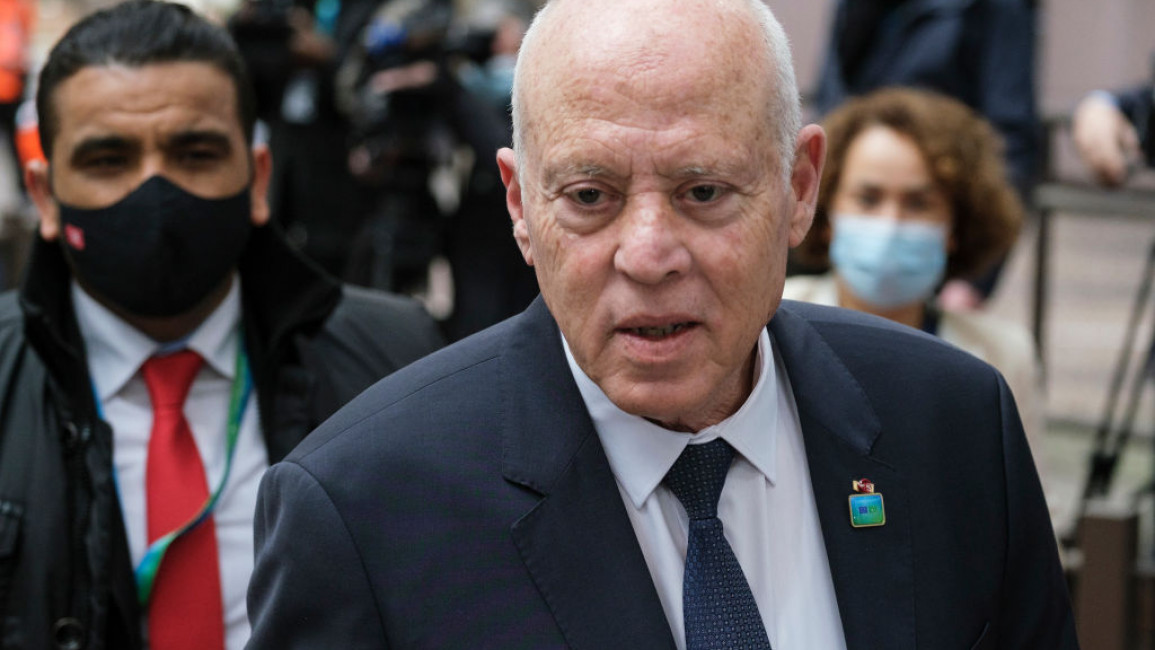Tunisian president Saied reappears after 12-day absence
Tunisian President Kais Saied has made a public appearance for the first time since 23 March, denying that he had suffered any health problem.
The president’s 12-day disappearance from the public scene had stoked speculation about his health, with prominent opposition politicians and political analysts criticising his unexplained absence and saying that he could have suffered a heart attack.
In a video published on Monday, showing Saied meeting Prime Minister Najla Bouden, the 65-year-old Tunisian leader said that his opponents “had reached a level of madness we haven’t seen before in Tunisia”, by claiming that there was a “vacancy” in the presidency during his absence.
Saied added that “some parties are trying to create crises”.
“They want crisis after crisis and have no interest but power,” he added.
Until his Monday appearance, Saied was last seen in public performing Taraweeh prayers at the historic Al-Zaytuna Mosque in Tunis on the first night of Ramadan, which coincided with 23 March.
He initially cancelled a meeting with the EU’s economic affairs commissioner last week, Paolo Gentiloni, before going ahead with a brief audience.
He was later not present for the confirmation of the new Brazilian ambassador to Tunis last Wednesday or a cabinet meeting the following Friday.
Many political opponents said that Saied had made an unannounced absence at a time when Tunisia was in the midst of a severe economic crisis. There are fears that the North African country could go bankrupt.
The Tunisian leader won democratic presidential elections in 2019 but in 2021 launched a coup against democratic institutions, suspending parliament and sacking the prime minister.
Since then he has arrested dozens of political opponents, enacted a constitution described as “authoritarian” by rights groups, and incited racial violence against migrants from African countries south of the Sahara.


![Minnesota Tim Walz is working to court Muslim voters. [Getty]](/sites/default/files/styles/image_684x385/public/2169747529.jpeg?h=a5f2f23a&itok=b63Wif2V)




![Debris near Rafic Hariri International Airport [Getty]](/sites/default/files/styles/image_212x120/public/2176162423.jpeg?h=a5f2f23a&itok=XLiO6WHk)
![An Israeli air strike on Jabalia killed teenage journalist Hassan Hamad [Screengrab/X]](/sites/default/files/styles/image_212x120/public/2024-10/hassan%20hamad1.jpg?h=c12e0b96&itok=KstD_5xk)
